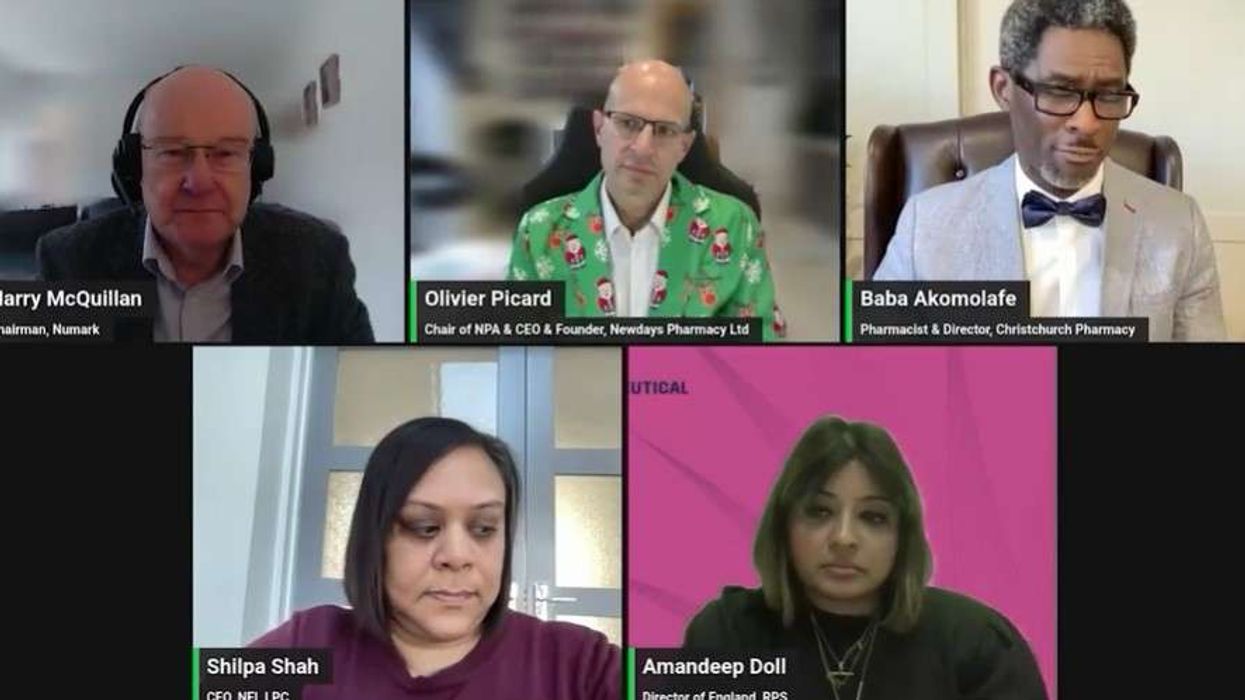In the first of a new series of exclusive articles, Faheem Ahmed explains how having a deeper sense of purpose can help build a team culture where individuals are motivated and inspired and can excel at what they do…
Do you wake up inspired to go to work either in a pharmacy or general practice and come home, at the end of the day, feeling fulfilled by the work you do?
In other words, do you have a sense of direction and purpose in your personal and professional life?
If you cannot answer a clear and loud ‘yes’ to these questions, do not worry because many healthcare professionals and their teams do not know why they do what they do and, as a result, do not return home from work feeling fulfilled. In this article, I will try to help you find your why such that you can wake up in the morning feeling inspired to go to work.
Firstly, if you noticed, in the above questions, I used the term fulfillment and not happiness. The question asked ‘do you feel fulfilled?’ it never asked ‘are you happy?’
Now, you may be thinking, why does it matter? What is the difference?
Well, there is a difference, and it does matter. So let us start by looking at the difference between fulfillment and happiness.
Happiness or fulfillment?
Happiness is temporary; the feeling does not last. No one walks around being energized by the memory of a goal hit 12 months ago, such as passing your pre-registration exam or setting up your pharmacy business. That intensity passes with time.
But fulfillment is deeper, and it lasts. Think of it as something you love rather than like. It makes you feel part of something bigger. But when you are not part of something bigger, you can feel unfulfilled even if you are successful by standard measures like compensation, status, and money.
To clarify, you will find happiness when you close a deal, make a sale, achieve a goal, get a dream job, open your pharmacy business, but fulfillment will come knowing this is contributing to a higher cause with larger implications.
Happiness comes from what we do. Fulfillment comes from why we do it.
Finding your why
We all have a why – a deep-seated purpose, cause, or belief that is the source of our passion and inspiration. If you want to feel an undying passion for your work, if you want to feel you contribute to something bigger than yourself, you need to know your why.
To inspire people to do the things that inspire them so that, together, we can change our world. That is what drives me; that is my passion, which is why I do what I do.
If you were to ask one of your colleagues-anyone- ‘what is it that we do at (fill in your organization’s name)?’ chances are they will be able to explain this, and you may hear the following: we supply medicine, we dispense prescriptions, we give advice, etc.
Now, if you go one step further and ask how they do what they do, and again, they will without a doubt be able to take you through the ins and outs of how they go about accomplishing their duties.
However, when you ask them why they do what they do, some won’t be able to answer, and those who can, will answer along the lines of: ‘because it’s my job’ or ‘because my boss instructed me to’ or ‘because it’s my responsibility and I’m paid to do it.’
Now, do those answers sound inspiring to you? Do you feel your teams have a real sense of being part of something bigger, a cause, or a purpose for which they are willing to fight, die and work for no matter what?
In my opinion, the above is not inspiring or fulfilling. Instead, imagine if your teams answered why they do what they do as: To build a world where everyone on the planet is the best version of themselves. Can you sense the difference in the statement?
Just close your eyes and imagine if your colleagues woke up every single day striving to build a world where we are the best versions of ourselves and applied this to their jobs, relationships, personal lives, and with everyone they came in contact with? Well, in my opinion, your teams and colleagues would feel inspired and part of something bigger.
The why does not just apply to people but also your business.
The points mentioned above do not just apply to people, but also to the companies you own or work for. Let us take Apple’s example, which has strong competitors offering cheaper products with more features. However, Apple’s customers are loyal and inspired by their slogan ‘Think Different,’ which articulates their why perfectly.
Let us explore how compelling a strong purpose can be in the marketplace. Let’s look at two pharmacies’ advertising pitches. The first one highlights the company’s affordable online repeat prescription service. The second one highlights the company’s mission of creating a world where all people are healthy physically, mentally, and spiritually so that they are the best versions of themselves.
Which pitch do you feel was more compelling and attractive?
In my opinion, the second pitch is inspiring, and it sounds like a company I would want to be a part of because it clearly articulates the company’s why.
Applying the why
The principle of the why can have powerful benefits in everything you do. In a sales discussion with a new customer, you can start with the why to help customers self-select as to whether they believe in your vision or cause. If they do, they will buy into why you do it rather than what you do, and this can set the stage for them to become a loyal customer.
When recruiting, if you start with the why, you can help potential employees self-select as to whether they believe in your cause or not. If they do, they will buy into why you do what you do, and this belief in the why will sustain employees through the inevitable ups and downs.
When the company makes a major pivot, the employees will stand with them through thick and thin because they believe in the why. And while other companies come calling with sole extrinsic manipulations of better salary and title, these employees will think twice about exploring those opportunities.
Prescribing pharmacist Faheem Ahmed is owner of Ahmeys Pharmacy in Oxford and MEDLRN. He also won the Pharmacy Business Innovation Award 2020.











